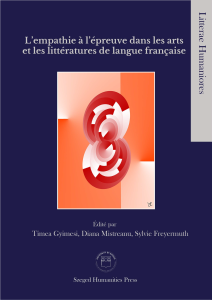L’empathie narrative dans Allah n’est pas obligé d’Ahmadou Kourouma: les oraisons funèbres de Birahima
Tartalom
To understand how reading promotes empathy, we first assume a set of narrative techniques that contribute to empathetic experiences. These include certain linguistic features at the local and global level in relation to the emergence of empathy: the first person narrative, the representation of the consciousness and of the characters’ moods, the choice of certain discursive genres. However, the relationship between empathetic processes and narrative empathy remains to be proven. It is therefore also appropriate to take into consideration, secondly, the reading process, the intersubjectivity between the reader and the author and the tendency among postcolonial authors to create universal bridge characters whose aim is to maximize the chance of triggering empathy in the reader.
Keywords: narrative empathy, narrative techniques, eulogy, bridge characters, reading process, Ahmadou Kourouma


